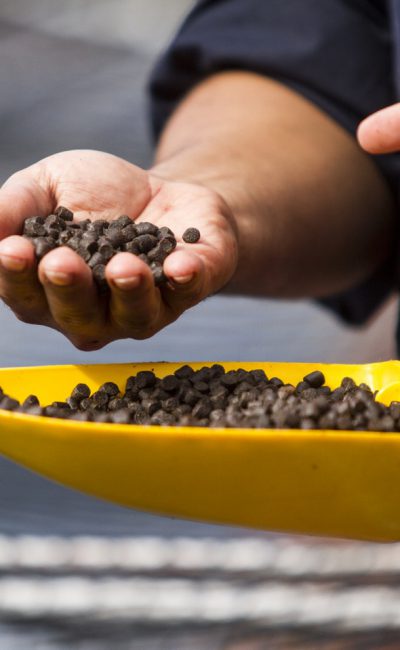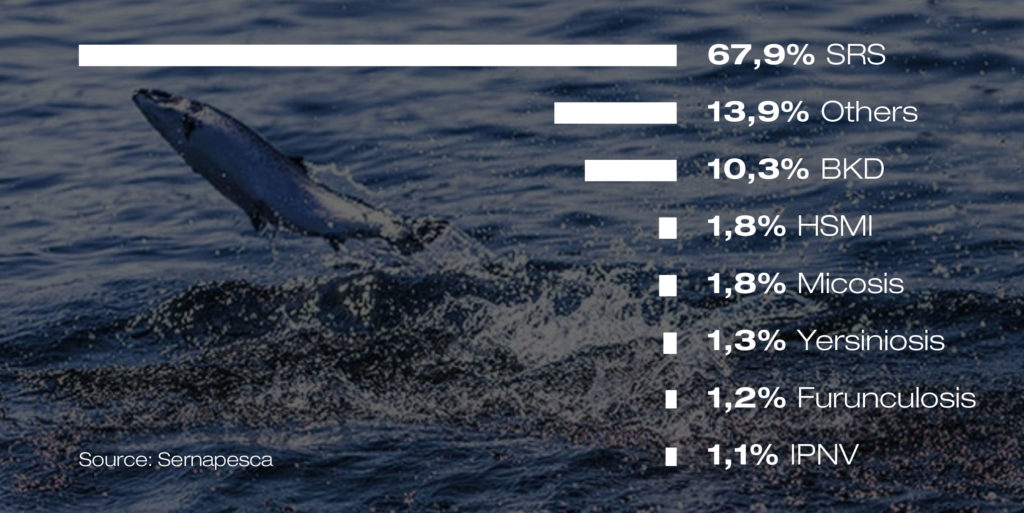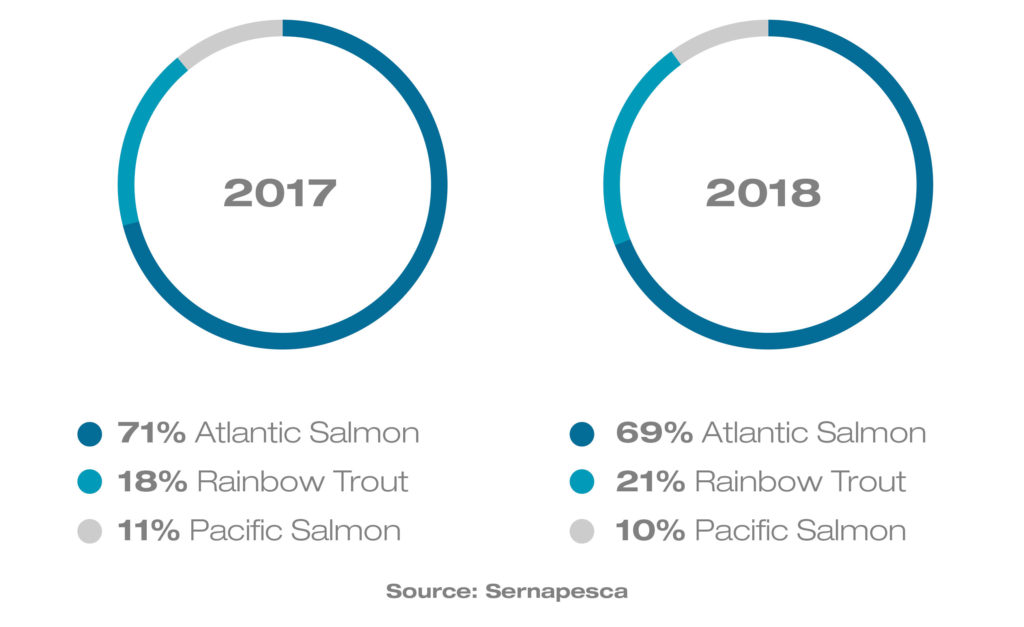
The Pincoy Project is a collaborative initiative with the aim to reduce antibiotic use in the Chilean salmon industry.
Pincoy objective is to formulate collaborative strategies on a wide range of production practices, from genetic factors and functional and high-performing diets to smolt selection and vaccination. Pincoy also helps to develop best practice protocols for freshwater and seawater fish farming phases, monitoring, and reporting to the industry.
The Project builds on prior efforts of Chile’s National Fisheries and Aquaculture Service (SERNAPESCA) and the Salmon Industry Association of Chile (SalmonChile) and leverages pharmaceutical, genetic and production advances to synergistically shape joint strategies, share expertise, and bring about best practices.
The Pincoy Project intends to achieve these cross-cutting results:
The project started when the fish was stocked between 2016 and 2018.
Salmonid rickettsial syndrome (SRS) has been the leading driver of intensive antibiotic use in the Chilean salmon industry in recent years, as standard vaccines and therapies proved to be partially effective.
SERNAPESCA reports that in 2018 SRS accounted for 67,9 percent of the overall infectious mortality in Chile.

